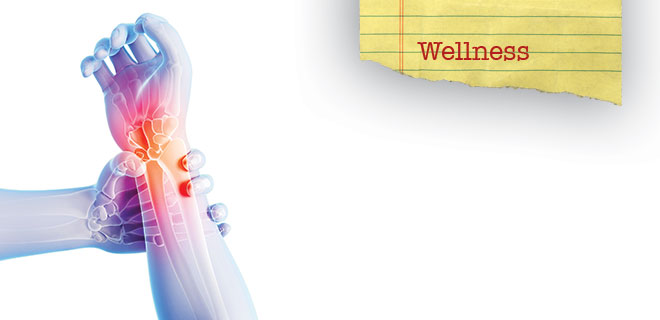Repetitive stress injuries (RSIs) are injuries that happen when too much stress is placed on a part of the body, resulting in inflammation (pain and swelling), muscle strain, or tissue damage. This stress generally occurs from repeating the same movements over and over again.
RSIs are common work-related injuries, often affecting people who spend a lot of time using computer keyboards.
While most common in adults, RSIs are becoming more prevalent in teens because they spend more time than ever using computers. Playing sports like tennis that involve repetitive motions can also lead to RSIs. You may hear sports-related RSIs referred to as overuse injuries. Teens who spend a lot of time playing musical instruments or video games are also at risk for RSIs.
In general, RSIs include more than 100 different kinds of injuries and illnesses resulting from repetitive wear and tear on the body. These injuries vary from person to person in type and severity.
In teens, overuse injuries most often occur at growth plates (areas at the ends of bones where bone cells multiply rapidly, making bones longer as someone grows). Areas most affected by RSIs are the elbows, shoulders, knees, and heels.
What Causes Repetitive Stress Injuries?
Most RSI conditions found in teens are linked to the stress of repetitive motions at the computer or in sports. When stress occurs repeatedly over time, the body’s joints don’t have the chance to recover, and the joints and surrounding tendons and muscles become irritated and inflamed.
Certain jobs that involve repetitive tasks — such as scanning items as a supermarket checker or carrying heavy trays as a waiter — can lead to RSIs. Sometimes, playing musical instruments can cause problems from overuse of certain hand or arm movements. Any repetitive movement can cause an injury — even text messaging!
Using improper equipment while playing sports is another important factor in RSIs. For example, running in athletic shoes that don’t provide enough support can lead to shin splits and foot and ankle problems. Improperly fitted tennis rackets can contribute to a condition called tennis elbow.
Teens may be susceptible to RSIs because of the significant physical growth that occurs in the teen years. The growth spurt (the rapid growth period during puberty) can create extra tightness and tension in muscles and tendons, making teens more prone to injury.
Nutritional factors also come into play in RSIs. Proper nutrition is essential for developing and maintaining strong muscles and bones — and to keep up the energy levels needed to play sports and perform other physical activities well.
To read the rest of this article, check out the Spring 2014 issue in High School Illustrated – South Orange County for iPad, completely free on the App Store.
 High School Illustrated High School Sports Magazine
High School Illustrated High School Sports Magazine


What can a waiter do with crippling R S. I. In his left forearm